formerly eScholarship Editions


|
|
|
|
Your search for
'History and Philosophy of Science' in subject
found 49 book(s). | Modify Search | Displaying 21 - 40 of 49 book(s) | |
| 21. | 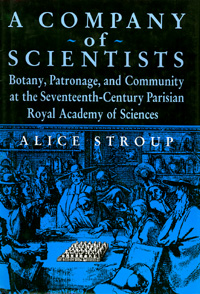 | Title: A company of scientists: botany, patronage, and community at the Seventeenth-century Parisian Royal Academy of Sciences Author: Stroup, Alice Published: University of California Press, 1990 Subjects: History | History and Philosophy of Science | European History Publisher's Description: Who pays for science, and who profits? Historians of science and of France will discover that those were burning questions no less in the seventeenth century than they are today. Alice Stroup takes a new look at one of the earliest and most influential scientific societies, the Académie Royale des Sciences. Blending externalist and internalist approaches, Stroup portrays the Academy in its political and intellectual contexts and also takes us behind the scenes, into the laboratory and into the meetings of a lively, contentious group of investigators.Founded in 1666 under Louis XIV, the Academy had a dual mission: to advance science and to glorify its patron. Creature of the ancien régime as well as of the scientific revolution, it depended for its professional prestige on the goodwill of monarch and ministers. One of the Academy's most ambitious projects was its illustrated encyclopedia of plants. While this work proceeded along old-fashioned descriptive lines, academicians were simultaneously adopting analogical reasoning to investigate the new anatomy and physiology of plants. Efforts to fund and forward competing lines of research were as strenuous then as now. We learn how academicians won or lost favor, and what happened when their research went wrong. Patrons and members shared in a new and different kind of enterprise that may not have resembled the Big Science of today but was nevertheless a genuine "company of scientists." [brief] Similar Items |
| 22. | 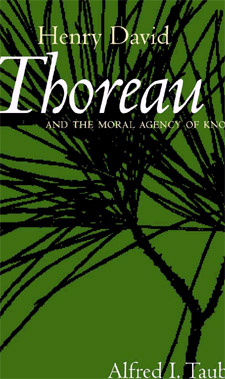 | Title: Henry David Thoreau and the moral agency of knowing Author: Tauber, Alfred I Published: University of California Press, 2001 Subjects: Philosophy | Literature | History and Philosophy of Science | Ethics Publisher's Description: In his graceful philosophical account, Alfred I. Tauber shows why Thoreau still seems so relevant today - more relevant in many respects than he seemed to his contemporaries. Although Thoreau has been skillfully and thoroughly examined as a writer, naturalist, mystic, historian, social thinker, Transcendentalist, and lifelong student, we may find in Tauber's portrait of Thoreau the moralist a characterization that binds all these aspects of his career together. Thoreau was caught at a critical turn in the history of science, between the ebb of Romanticism and the rising tide of positivism. He responded to the challenges posed by the new ideal of objectivity not by rejecting the scientific worldview, but by humanizing it for himself. Tauber portrays Thoreau as a man whose moral vision guided his life's work. Each of Thoreau's projects reflected a self-proclaimed "metaphysical ethics," an articulated program of self-discovery and self-knowing. By writing, by combining precision with poetry in his naturalist pursuits and simplicity with mystical fervor in his daily activity, Thoreau sought to live a life of virtue - one he would characterize as marked by deliberate choice. This unique vision of human agency and responsibility will still seem fresh and contemporary to readers at the start of the twenty-first century. [brief] Similar Items |
| 23. | 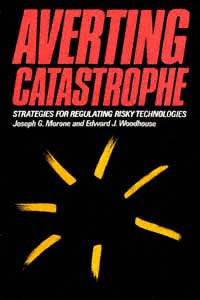 | Title: Averting catastrophe: strategies for regulating risky technologies Author: Morone, Joseph G Published: University of California Press, 1988 Subjects: Environmental Studies | History and Philosophy of Science | Politics Publisher's Description: Chernobyl, Bhopal, and Love Canal are symbols of the potentially catastrophic risks that go hand in hand with much modern technology. This volume is a non-partisan study of the imperfect but steadily developing system for containing the risks of such technologies as chemicals, nuclear power, and gen . . . [more] Similar Items |
| 24. | 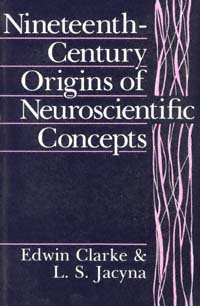 | Title: Nineteenth-century origins of neuroscientific concepts Author: Clarke, Edwin Published: University of California Press, 1992 Subjects: Science | History and Philosophy of Science | Medicine | Ethics Publisher's Description: This book traces the seminal ideas that emerged in the first half of the nineteenth century, when the fundamental concepts of modern neurophysiology and anatomy were formulated in a period of unprecedented scientific discovery. Similar Items |
| 25. | 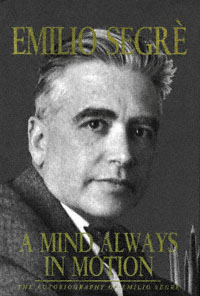 | Title: A mind always in motion: the autobiography of Emilio Segrè Author: Segrè, Emilio Published: University of California Press, 1993 Subjects: Science | History and Philosophy of Science | Physics | Autobiography Publisher's Description: The renowned physicist Emilio Segrè (1905-1989) left his memoirs to be published posthumously because, he said, "I tell the truth the way it was and not the way many of my colleagues wish it had been." This compelling autobiography offers a personal account of his fascinating life as well as candid portraits of some of this century's most important scientists, such as Enrico Fermi, E. O. Lawrence, and Robert Oppenheimer.Born in Italy to a well-to-do Jewish family, Segrè showed early signs of scientific genius - at age seven he began a notebook of physics experiments. He became Fermi's first graduate student in 1928 and contributed to the discovery of slow neutrons, and later was appointed director of the physics laboratory at the University of Palermo. While visiting the Radiation Laboratory at Berkeley in 1938, he learned that he had been dismissed from his Palermo post by Mussolini's Fascist regime. Lawrence then hired him to work on the cyclotron at Berkeley with Luis Alvarez, Edwin McMillan, and Glenn Seaborg. Segrè was one of the first to join Oppenheimer at Los Alamos, where he became a group leader on the Manhattan Project. His account of that mysterious enclave of scientists, all working feverishly to develop the atomic bomb before the Nazis did, includes his description of the first explosion at Alamogordo.Segrè writes movingly of the personal devastation wrought by the Nazis, his struggles with fellow scientists, and his love of nature. His book offers an intimate glimpse into a bygone era as well as a unique perspective on some of the most important scientific developments of this century. [brief] Similar Items |
| 26. | 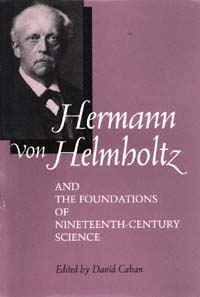 | Title: Hermann von Helmholtz and the foundations of nineteenth-century science Author: Cahan, David Published: University of California Press, 1994 Subjects: Science | History | History and Philosophy of Science | Victorian History Publisher's Description: Hermann von Helmholtz (1821-1894) was a polymath of dazzling intellectual range and energy. Renowned for his co-discovery of the second law of thermodynamics and his invention of the ophthalmoscope, Helmholtz also made many other contributions to physiology, physical theory, philosophy of science and mathematics, and aesthetic thought. During the late nineteenth century, Helmholtz was revered as a scientist-sage - much like Albert Einstein in this century.David Cahan has assembled an outstanding group of European and North American historians of science and philosophy for this intellectual biography of Helmholtz, the first ever to critically assess both his published and unpublished writings. It represents a significant contribution not only to Helmholtz scholarship but also to the history of nineteenth-century science and philosophy in general. [brief] Similar Items |
| 27. | 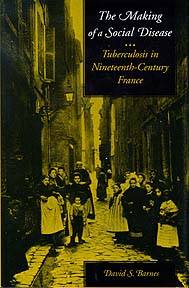 | Title: The making of a social disease;: tuberculosis in nineteenth-century France Author: Barnes, David S Published: University of California Press, 1995 Subjects: History | History and Philosophy of Science | Medicine | European History Publisher's Description: In this first English-language study of popular and scientific responses to tuberculosis in nineteenth-century France, David Barnes provides a much-needed historical perspective on a disease that is making an alarming comeback in the United States and Europe. Barnes argues that French perceptions of the disease - ranging from the early romantic image of a consumptive woman to the later view of a scourge spread by the poor - owed more to the power structures of nineteenth-century society than to medical science. By 1900, the war against tuberculosis had become a war against the dirty habits of the working class.Lucid and original, Barnes's study broadens our understanding of how and why societies assign moral meanings to deadly diseases. [brief] Similar Items |
| 28. | 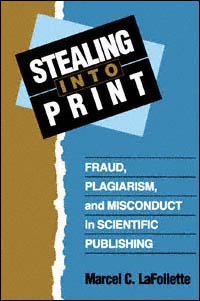 | Title: Stealing into print: fraud, plagiarism, and misconduct in scientific publishing Author: LaFollette, Marcel C. (Marcel Chotkowski) Published: University of California Press, 1992 Subjects: Media Studies | History and Philosophy of Science | Print Media | Public Policy | Science Publisher's Description: False data published by a psychologist influence policies for treating the mentally retarded. A Nobel Prize-winning molecular biologist resigns the presidency of Rockefeller University in the wake of a scandal involving a co-author accused of fabricating data. A university investigating committee declares that almost half the published articles of a promising young radiologist are fraudulent.Incidents like these strike at the heart of the scientific enterprise and shake the confidence of a society accustomed to thinking of scientists as selfless seekers of truth. Marcel LaFollette's long-awaited book gives a penetrating examination of the world of scientific publishing in which such incidents of misconduct take place. Because influential scientific journals have been involved in the controversies, LaFollette focuses on the fragile "peer review" process - the editorial system of seeking pre-publication opinions from experts. She addresses the cultural glorification of science, which, combined with a scientist's thirst for achievement, can seem to make cheating worth the danger. She describes the great risks taken by the accusers - often scholars of less prestige and power than the accused - whom she calls "nemesis figures" for their relentless dedication to uncovering dishonesty.In sober warning, LaFollette notes that impatient calls from Congress, journalists, and taxpayers for greater accountability from scientists have important implications for the entire system of scientific research and communication.Provocative and learned, Stealing Into Print is certain to become the authoritative work on scientific fraud, invaluable to the scientific community, policy makers, and the general public. [brief] Similar Items |
| 29. | 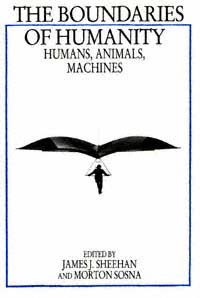 | Title: The Boundaries of humanity: humans, animals, machines Author: Sheehan, James J Published: University of California Press, 1991 Subjects: Philosophy | History and Philosophy of Science | Biology | Technology and Society Publisher's Description: To the age-old debate over what it means to be human, the relatively new fields of sociobiology and artificial intelligence bring new, if not necessarily compatible, insights. What have these two fields in common? Have they affected the way we define humanity? These and other timely questions are addressed with colorful individuality by the authors of The Boundaries of Humanity .Leading researchers in both sociobiology and artificial intelligence combine their reflections with those of philosophers, historians, and social scientists, while the editors explore the historical and contemporary contexts of the debate in their introductions. The implications of their individual arguments, and the often heated controversies generated by biological determinism or by mechanical models of mind, go to the heart of contemporary scientific, philosophical, and humanistic studies. [brief] Similar Items |
| 30. | 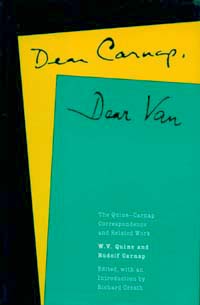 | Title: Dear Carnap, dear Van: the Quine-Carnap correspondence and related work Author: Carnap, Rudolf 1891-1970 Published: University of California Press, 1991 Subjects: Philosophy | History and Philosophy of Science | Autobiographies and Biographies Publisher's Description: Rudolf Carnap and W. V. Quine, two of the twentieth century's most important philosophers, corresponded at length - and over a long period of time - on matters personal, professional, and philosophical. Their friendship encompassed issues and disagreements that go to the heart of contemporary philosophic discussions. Carnap (1891-1970) was a founder and leader of the logical positivist school. The younger Quine (1908-) began as his staunch admirer but diverged from him increasingly over questions in the analysis of meaning and the justification of belief. That they remained close, relishing their differences through years of correspondence, shows their stature both as thinkers and as friends. The letters are presented here, in full, for the first time.The substantial introduction by Richard Creath offers a lively overview of Carnap's and Quine's careers and backgrounds, allowing the nonspecialist to see their writings in historical and intellectual perspective. Creath also provides a judicious analysis of the philosophical divide between them, showing how deep the issues cut into the discipline, and how to a large extent they remain unresolved. Dear Carnap, I enclose a copy of a paper which I am ready to send off for publication. . . . I am anxious to have you look this over as soon as possible, to see whether you have reason to suppose the system contradictory: for it looks dangerous. Dear Quine: I read your paper very carefully and with the highest interest. . . . So far, I do not see any contradiction in the system itself . . . but I share your feeling that the whole looks rather dangerous. [brief] Similar Items |
| 31. | 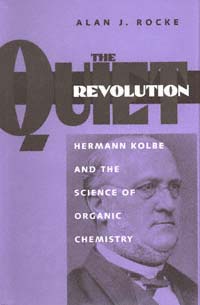 | Title: The quiet revolution: Hermann Kolbe and the science of organic chemistry Author: Rocke, Alan J 1948- Published: University of California Press, 1993 Subjects: Science | History and Philosophy of Science | Physical Sciences | European History Publisher's Description: Organic chemist Hermann Kolbe (1818-1884) is the subject of this vigorously contextualized biography, which combines the approaches of cognitive and social history of science. Kolbe was one of the most outstanding chemists during the remarkable period in which German science, like the wider manifestations of German industrial and political power, rose to a position of world dominance.Rocke portrays Kolbe as a leading actor in the transformation of the institutional and pedagological dimensions of the physical sciences, as well as in the rapid growth of technologically powerful pure sciences. In all these areas there was a sharp inflection point around 1860 when, as Rocke persuasively argues, the primary discipline in the drama was organic chemistry. [brief] Similar Items |
| 32. | 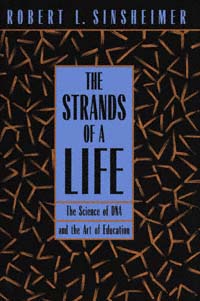 | Title: The strands of a life Author: Sinsheimer, Robert Published: University of California Press, 1994 Subjects: Science | Biology | History and Philosophy of Science | Autobiographies and Biographies Publisher's Description: From heading a campus of the largest public university in the nation to participating in the birth of molecular biology, Robert L. Sinsheimer's experiences have given him a unique vantage point from which to view the paths that science and education have taken in the twentieth century. This book tells the story of his life, of his own growth, and of his leading role in both science and higher learning during the past fifty years.Robert L. Sinsheimer's experiences have given him a unique vantage point from which to view the paths that science and education have taken in the twentieth century. He has witnessed and participated in the birth of molecular biology, taught at leading universities, and headed a campus of the largest public university in the nation. This book tells the story of his life, of his own growth, and of his leading role in both science and higher learning during the past fifty years.While a student and then a researcher at MIT, and as a professor at Iowa State University and later at Caltech, Sinsheimer was a major participant in the "molecular revolution" that radically transformed the science of life. He was also one of the first to foresee the potential of molecular biology and to draw attention to some of the ethical quandaries the new science would pose.In 1977 Sinsheimer became chancellor at the University of California, Santa Cruz, at a crucial time in the campus's evolution. He played a key part in revitalizing the educational experiment that has made the campus unique among the state's institutions of higher learning.Sinsheimer's life has been lived at the ever-advancing edge of knowledge. In simple, elegant language, he offers historical and philosophical insights into the world of science and the mind of a scientist. His reflections are both fascinating and valuable. [brief] Similar Items |
| 33. | 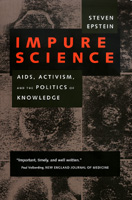 | Title: Impure science: AIDS, activism, and the politics of knowledge Author: Epstein, Steven Published: University of California Press, 1996 Subjects: Social Science | Medicine | Public Policy | History and Philosophy of Science | Sociology Publisher's Description: In the short, turbulent history of AIDS research and treatment, the boundaries between scientist insiders and lay outsiders have been crisscrossed to a degree never before seen in medical history. Steven Epstein's astute and readable investigation focuses on the critical question of "how certainty is constructed or deconstructed," leading us through the views of medical researchers, activists, policy makers, and others to discover how knowledge about AIDS emerges out of what he calls "credibility struggles."Epstein shows the extent to which AIDS research has been a social and political phenomenon and how the AIDS movement has transformed biomedical research practices through its capacity to garner credibility by novel strategies. Epstein finds that nonscientist AIDS activists have gained enough of a voice in the scientific world to shape NIH?sponsored research to a remarkable extent. Because of the blurring of roles and responsibilities, the production of biomedical knowledge about AIDS does not, he says, follow the pathways common to science; indeed, AIDS research can only be understood as a field that is unusually broad, public, and contested. He concludes by analyzing recent moves to democratize biomedicine, arguing that although AIDS activists have set the stage for new challenges to scientific authority, all social movements that seek to democratize expertise face unusual difficulties.Avoiding polemics and accusations, Epstein provides a benchmark account of the AIDS epidemic to date, one that will be as useful to activists, policy makers, and general readers as to sociologists, physicians, and scientists. [brief] Similar Items |
| 34. | 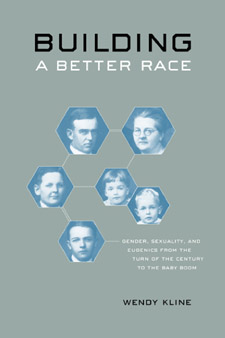 | Title: Building a better race: gender, sexuality, and eugenics from the turn of the century to the baby boom Author: Kline, Wendy 1968- Published: University of California Press, 2001 Subjects: History | United States History | Gender Studies | American Studies | History and Philosophy of Science Publisher's Description: Wendy Kline's lucid cultural history of eugenics in America emphasizes the movement's central, continuing interaction with popular notions of gender and morality. Kline shows how eugenics could seem a viable solution to problems of moral disorder and sexuality, especially female sexuality, during the first half of the twentieth century. Its appeal to social conscience and shared desires to strengthen the family and civilization sparked widespread public as well as scientific interest. Kline traces this growing public interest by looking at a variety of sources, including the astonishing "morality masque" that climaxed the 1915 Panama Pacific International Exposition; the nationwide correspondence of the influential Human Betterment Foundation in Pasadena, California; the medical and patient records of a "model" state institution that sterilized thousands of allegedly feebleminded women in California between 1900 and 1960; the surprising political and popular support for sterilization that survived initial interest in, and then disassociation from, Nazi eugenics policies; and a widely publicized court case in 1936 involving the sterilization of a wealthy young woman deemed unworthy by her mother of having children. Kline's engaging account reflects the shift from "negative eugenics" (preventing procreation of the "unfit") to "positive eugenics," which encouraged procreation of the "fit," and it reveals that the "golden age" of eugenics actually occurred long after most historians claim the movement had vanished. The middle-class "passion for parenthood" in the '50s had its roots, she finds, in the positive eugenics campaign of the '30s and '40s. Many issues that originated in the eugenics movement remain controversial today, such as the use of IQ testing, the medical ethics of sterilization, the moral and legal implications of cloning and genetic screening, and even the debate on family values of the 1990s. Building a Better Race not only places eugenics at the center of modern reevaluations of female sexuality and morality but also acknowledges eugenics as an essential aspect of major social and cultural movements in the twentieth century. [brief] Similar Items |
| 35. | 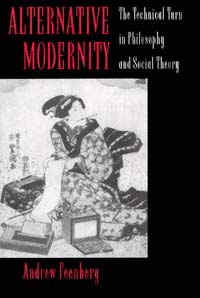 | Title: Alternative modernity: the technical turn in philosophy and social theory Author: Feenberg, Andrew Published: University of California Press, 1995 Subjects: Philosophy | Social and Political Thought | History and Philosophy of Science | Popular Culture Publisher's Description: In this new collection of essays, Andrew Feenberg argues that conflicts over the design and organization of the technical systems that structure our society shape deep choices for the future. A pioneer in the philosophy of technology, Feenberg demonstrates the continuing vitality of the critical theory of the Frankfurt School. He calls into question the anti-technological stance commonly associated with its theoretical legacy and argues that technology contains potentialities that could be developed as the basis for an alternative form of modern society.Feenberg's critical reflections on the ideas of Jürgen Habermas, Herbert Marcuse, Jean-François Lyotard, and Kitaro Nishida shed new light on the philosophical study of technology and modernity. He contests the prevalent conception of technology as an unstoppable force responsive only to its own internal dynamic and politicizes the discussion of its social and cultural construction.This argument is substantiated in a series of compelling and well-grounded case studies. Through his exploration of science fiction and film, AIDS research, the French experience with the "information superhighway," and the Japanese reception of Western values, he demonstrates how technology, when subjected to public pressure and debate, can incorporate ethical and aesthetic values. [brief] Similar Items |
| 36. |  | Title: Possessing nature: museums, collecting, and scientific culture in early modern Italy Author: Findlen, Paula Published: University of California Press, 1994 Subjects: History | History and Philosophy of Science | European History | Renaissance History Publisher's Description: In 1500 few Europeans regarded nature as a subject worthy of inquiry. Yet fifty years later the first museums of natural history had appeared in Italy, dedicated to the marvels of nature. Italian patricians, their curiosity fueled by new voyages of exploration and the humanist rediscovery of nature, created vast collections as a means of knowing the world and used this knowledge to their greater glory.Drawing on extensive archives of visitors' books, letters, travel journals, memoirs, and pleas for patronage, Paula Findlen reconstructs the lost social world of Renaissance and Baroque museums. She follows the new study of natural history as it moved out of the universities and into sixteenth- and seventeenth-century scientific societies, religious orders, and princely courts. Findlen argues convincingly that natural history as a discipline blurred the border between the ancients and the moderns, between collecting in order to recover ancient wisdom and the development of new textual and experimental scholarship. Her vivid account reveals how the scientific revolution grew from the constant mediation between the old forms of knowledge and the new. [brief] Similar Items |
| 37. | 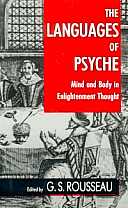 | Title: The Languages of psyche: mind and body in Enlightenment thought: Clark Library lectures, 1985-1986 Author: Rousseau, G. S. (George Sebastian) Published: University of California Press, 1991 Subjects: History | Medicine | History and Philosophy of Science | European History | European Literature Publisher's Description: The Languages of Psyche traces the dualism of mind and body during the "long eighteenth century," from the Restoration in England to the aftermath of the French Revolution. Ten outstanding scholars investigate the complex mind-body relationship in a variety of Enlightenment contexts - science, medicine, philosophy, literature, and everyday society. No other recent book provides such an in-depth, suggestive resource for philosophers, literary critics, intellectual and social historians, and all who are interested in Enlightenment studies. [brief] Similar Items |
| 38. | 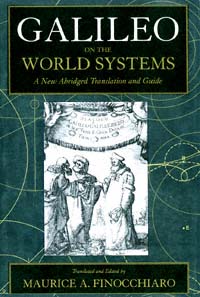 | Title: Galileo on the world systems: a new abridged translation and guide Author: Galilei, Galileo 1564-1642 Published: University of California Press, 1997 Subjects: Cinema and Performance Arts | History and Philosophy of Science | History Publisher's Description: Galileo's 1632 book, Dialogue on the Two Chief World Systems, Ptolemaic and Copernican , comes alive for twentieth-century readers thanks to Maurice Finocchiaro's brilliant new translation and presentation. Condemned by the Inquisition for its heretical proposition that the earth revolves around the sun, Galileo's masterpiece takes the form of a debate, divided into four "days," among three highly articulate gentlemen.Finocchiaro sets the stage with his introduction, which not only provides the human and historical framework for the Dialogue but also admits the reader gracefully into the basic non-Copernican understanding of the universe that would have been shared by Galileo's original audience. The translation of the Dialogue is abridged in order to highlight its essential content, and Finocchiaro gives titles to the various parts of the debate as a guide to the principal topics. By explicating his own critical reading of this text that is itself an exercise in critical reasoning on a gripping real-life controversy, he illuminates those universal, perennial activities of the human mind that make Galileo's book a living document. This is a concrete, hands-on introduction to critical thinking. The translation has been made from the Italian text provided in volume 7 of the Critical National Edition of Galileo's complete works edited by Antonio Favaro. The translator has also consulted the 1632 edition, as well as the other previous English translations, including California's 1967 version . Galileo on the World Systems is a remarkably nuanced interpretation of a classic work and will give readers the tools to understand and evaluate for themselves one of the most influential scientific books in Western civilization. [brief] Similar Items |
| 39. | 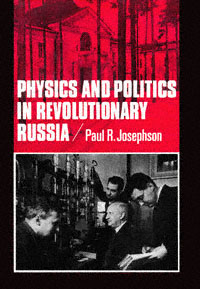 | Title: Physics and politics in revolutionary Russia Author: Josephson, Paul R Published: University of California Press, 1991 Subjects: History | History and Philosophy of Science | Russian and Eastern European Studies | Politics Publisher's Description: Aided by personal documents and institutional archives that were closed for decades, this book recounts the development of physics - or, more aptly, science under stress - in Soviet Russia up to World War II. Focusing on Leningrad, center of Soviet physics until the late 1930s, Josephson discusses the impact of scientific, cultural, and political revolution on physicists' research and professional aspirations.Political and social revolution in Russia threatened to confound the scientific revolution. Physicists eager to investigate new concepts of space, energy, light, and motion were forced to accommodate dialectical materialism and subordinate their interests to those of the state. They ultimately faced Stalinist purges and the shift of physics leadership to Moscow. This account of scientists cut off from their Western colleagues reveals a little-known part of the history of modern physics. [brief] Similar Items |
| 40. | 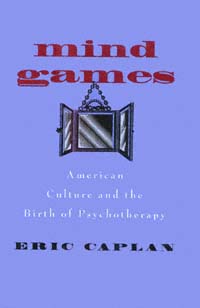 | Title: Mind games: American culture and the birth of psychotherapy Author: Caplan, Eric 1962- Published: University of California Press, 1998 Subjects: History | United States History | American Studies | Science | History and Philosophy of Science Publisher's Description: Eric Caplan's fascinating exploration of Victorian culture in the United States shatters the myth of Freud's seminal role in the creation of American psychotherapy. Resurrecting the long-buried "prehistory" of American mental therapeutics, Mind Games tells the remarkable story of how a widely assorted group of actors - none of them hailing from Vienna or from any other European city - compelled a reluctant medical profession to accept a new role for the mind in medicine. By the time Freud first set foot on American soil in 1909, as Caplan demonstrates, psychotherapy was already integrally woven into the fabric of American culture and medicine.What came to be known as psychotherapy emerged in the face of considerable opposition, much - indeed most - of which was generated by the medical profession itself. Caplan examines the contentious interplay within the American medical community, as well as between American physicians and their lay rivals, who included faith-healers, mind-curists, Christian Scientists, and Protestant ministers. These early practitioners of alternative medicine ultimately laid the groundwork for a distinctive and much heralded American type of psychotherapy. Its grudging acceptance by both medical elites and rank and file physicians signified their understanding that reliance on physical therapies to treat nervous and mental symptoms compromised their capacity to treat - and compete - effectively in a rapidly expanding mental-medical marketplace. Mind Games shows how psychotherapy came to occupy its central position in mainstream American culture. [brief] Similar Items |